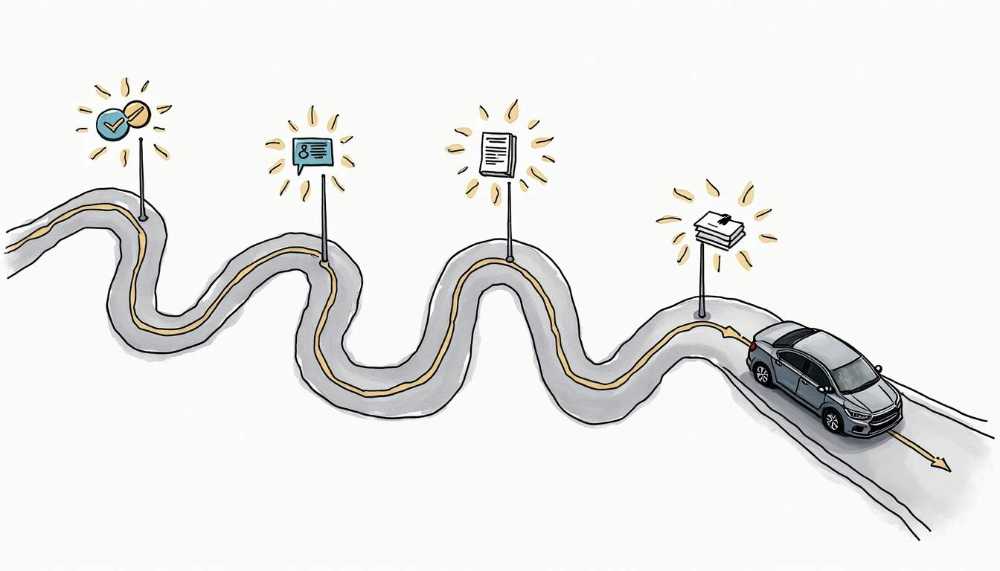For many individuals, car ownership is vital for both personal and professional mobility. However, financial burdens can make it difficult to maintain car payments. Car loan modification emerges as an appealing solution for those struggling with their auto financing commitments. This article explores the intricacies of car loan modification, its benefits, the process involved, and inspiring success stories of individuals who have felt the positive effects of such modifications.
Understanding Car Loan Modification
What is Car Loan Modification?
Car loan modification is a process that allows borrowers to renegotiate the terms of their auto loan in order to achieve more favorable repayment conditions. This could include adjustments to the interest rate, the length of the loan term, or even the overall loan amount. The goal is to provide a solution for those who find themselves in financial distress, making their monthly payments more manageable.
Typically, car loan modifications are initiated when a borrower experiences financial hardship, which could be due to job loss, medical bills, or unforeseen expenses. By modifying the terms of their loan, borrowers can alleviate some of the financial pressure while retaining ownership of their vehicle. This process often involves contacting the lender directly, providing documentation of the financial situation, and negotiating terms that are more suitable for the borrower's current circumstances. It’s important to approach this process with a clear understanding of one’s financial situation and to be prepared to discuss potential solutions with the lender.
The Benefits of Car Loan Modification
There are several compelling benefits to pursuing a car loan modification. Firstly, it can significantly lower monthly payments, thus allowing individuals to allocate their resources to other essential expenses, such as housing, food, and healthcare.
Additionally, car loan modification may eliminate the risk of repossession. By securing more manageable payment terms, borrowers can ensure they stay current on their loans, maintaining their ability to use their vehicles for work and daily activities. This is particularly crucial for individuals who rely on their cars for commuting or other essential travel, as losing a vehicle can further complicate their financial situation and limit job opportunities.
Moreover, a modification can lead to reduced overall interest costs over the life of the loan. When interest rates are lower, borrowers can save substantial amounts, ultimately putting them on a better path towards financial recovery. Furthermore, some lenders may offer incentives for borrowers who successfully complete a modification, such as the possibility of a one-time payment reduction or a temporary forbearance period. This flexibility can provide additional breathing room for borrowers as they navigate their financial challenges, allowing them to regain control over their finances and work towards a more stable future.
The Process of Car Loan Modification
Initial Steps to Take
The first step in the car loan modification process is to assess your financial situation. Gather all relevant documentation, including your current loan details, income statements, and proof of any financial hardships you’re experiencing. This information will serve as the foundation for your negotiations with your lender. Understanding your financial standing not only helps you articulate your needs but also allows you to gauge what kind of modifications might be realistic based on your circumstances.
Next, it’s crucial to reach out to your lender. Many financial institutions provide options for loan modification; however, you may need to advocate for yourself effectively. Prepare to explain your circumstances and why you are seeking a modification. Establishing clear communication is key, as it allows your lender to understand your situation better. Additionally, it may be beneficial to research your lender's policies regarding loan modifications beforehand, as this knowledge can provide you with leverage during discussions.
Negotiating with Your Lender
Once you’ve initiated contact with your lender, the negotiation phase begins. Being well-prepared and informed can empower you during this process. Clearly articulate your needs, and be prepared to suggest specific modifications that would help ease your financial burden. For instance, you might request a lower interest rate, an extended loan term, or even a temporary payment deferral. Each of these options can significantly impact your monthly expenses and overall financial health.
During this negotiation, remain open to the lender's proposals, and try to find common ground. It may take some back-and-forth discussions, but persistence is often rewarded with a satisfactory solution. Document all agreements made during this process to ensure clarity and accountability. Furthermore, be aware of the potential impact of your modification on your credit score. While some lenders may report the modification as a positive change, others might view it as a sign of financial distress. Therefore, it’s essential to weigh the long-term effects of any agreement you reach.
Overcoming Challenges in Car Loan Modification
Common Obstacles in Loan Modification
While car loan modification offers numerous benefits, borrowers may face obstacles during the process. A common barrier is lender resistance; not all lenders are willing to accommodate modifications, fearing potential losses on their original loans. This reluctance can stem from a variety of factors, including the lender's internal policies and the economic climate. In times of financial uncertainty, lenders may tighten their criteria, making it even more difficult for borrowers to secure modifications.
Additionally, borrowers may encounter issues related to their credit score. If someone has a low credit score, they might find it challenging to negotiate favorable terms. Lenders may perceive high-risk borrowers as more problematic, complicating the modification process. Furthermore, the stigma surrounding poor credit can discourage borrowers from seeking help, leading them to feel isolated in their financial struggles. This situation can create a cycle of anxiety and frustration, making it essential for borrowers to understand their rights and options in the loan modification process.
Strategies to Overcome Challenges
To effectively navigate these challenges, borrowers should gather strong supporting documentation to present a compelling case for modification. Showing evidence of financial hardship, along with a clear plan for repayment, can improve the chances of favorable terms. This documentation can include recent pay stubs, bank statements, and any correspondence related to financial difficulties. By being transparent about their situation, borrowers can foster trust with their lenders, which may lead to more favorable outcomes.
Another useful strategy is to consider loan modification services or credit counseling agencies, which specialize in negotiating with lenders. These organizations can provide valuable insights and advocate on behalf of the borrower, potentially alleviating some pressure during the process. Additionally, they often have established relationships with various lenders, which can facilitate smoother negotiations. Borrowers should also educate themselves about the specific terms of their current loan agreements, as understanding the fine print can empower them to make informed decisions and identify areas where they may have leverage in discussions with their lenders.
The Impact of Car Loan Modification on Credit Score
Short-term Effects on Credit Score
One of the elements that borrowers often worry about is the effect that car loan modification can have on their credit score. In the short term, initiating a loan modification may reflect negatively on one’s credit report as it suggests financial distress. Lenders typically report modifications as a change in loan terms, which can lead to a temporary dip in scores. This initial impact can be particularly concerning for those who are already struggling with their finances, as a lower credit score can affect their ability to secure other forms of credit, such as personal loans or mortgages. Additionally, potential lenders may view a modified loan as a sign of risk, leading to higher interest rates or unfavorable loan terms in the future.
Long-term Effects on Credit Score
However, in the long term, successfully modifying and adhering to the new payment plan can improve a borrower's credit score. By making consistent, on-time payments under the new terms, individuals can rebuild their credit more effectively than if they faced repossession or defaulted on the original loan. Over time, as the modified loan is paid down, the positive payment history begins to outweigh the initial negative impact of the modification. Furthermore, maintaining a lower debt-to-income ratio as a result of the modified payments can also contribute positively to a credit score. This gradual improvement can open doors to better financial opportunities, allowing borrowers to eventually qualify for loans with more favorable terms and lower interest rates, thus setting them on a path to financial recovery.
Success Stories of Car Loan Modification
Achieving Financial Stability through Loan Modification
Many individuals have experienced remarkable transformations after successfully obtaining car loan modifications. For example, a single mother, burdened by mounting debt, sought to modify her car loan. Through diligent negotiation, she reduced her monthly payment significantly, which allowed her to catch up on other bills and spend more quality time with her children.
This new financial stability not only helped her to maintain her vehicle but also provided peace of mind, freeing her from the constant anxiety associated with unpaid loans. Such success stories illustrate the potential of car loan modification to change lives for the better.
The Role of Loan Modification in Debt Management
In the realm of overall debt management, car loan modification serves as a powerful tool. Individuals can stabilize their finances and prioritize paying down existing debts with more manageable car payments. This integrates well into a larger strategy of financial recovery, allowing borrowers to regain control over their financial futures.
Ultimately, the road to financial recovery is varied and often challenging, but car loan modification stands out as a viable means to enhance financial stability and facilitate growth. With the right approach, many have turned their financial struggles into success stories, and you can too.






